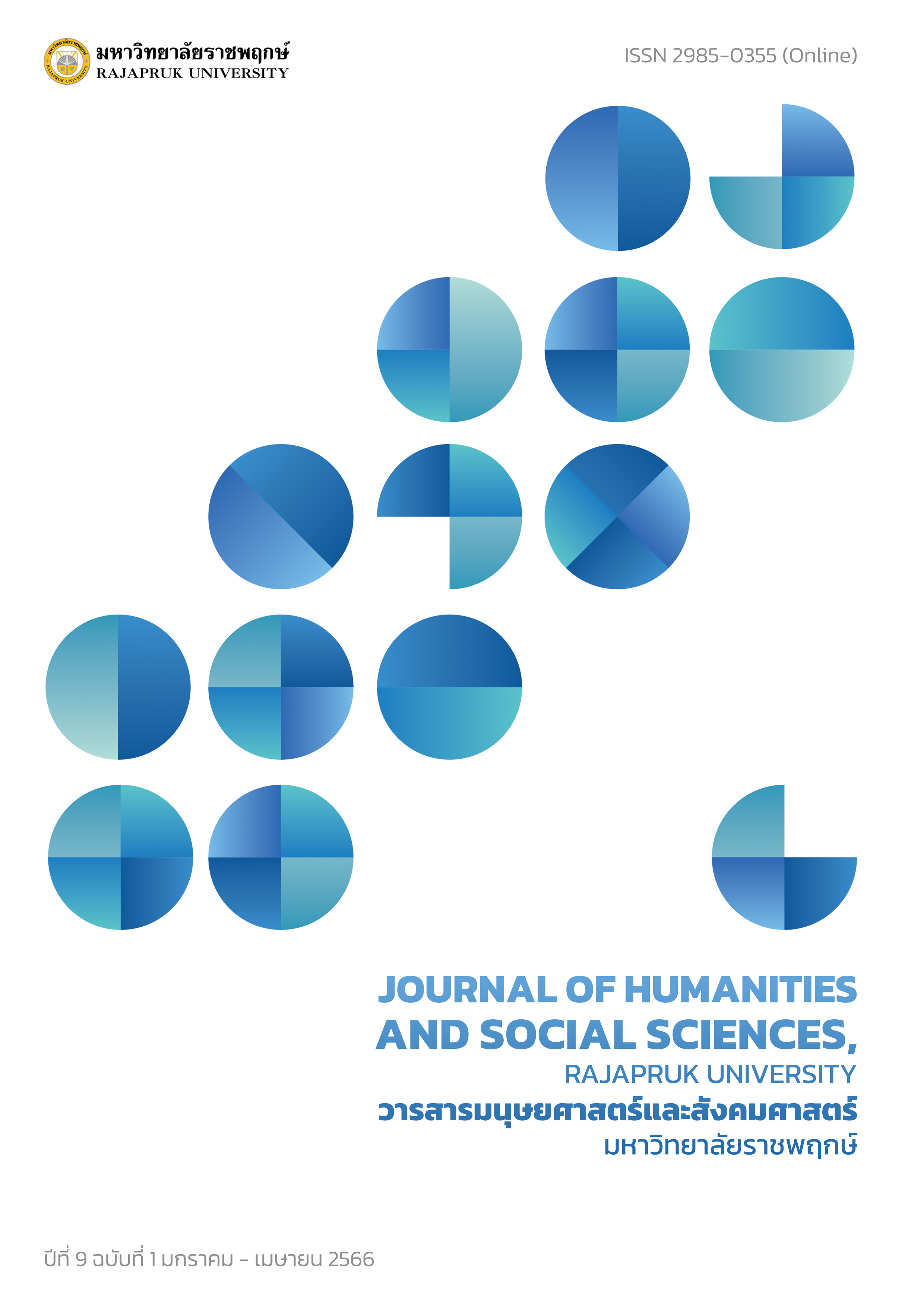The Creating Guidelines of Learning Community Development for Bang Khanun Sub-District Administration Organization, Bang Kruai District, Nonthaburi
Main Article Content
Abstract
The objective of this research were to; 1) study the level of being a learning community of the Sub-district Administrative Organization. 2) study the relationship between management factors and environmental analysis Strategy in terms of practice factors of success with the condition of being a learning community. 3) study the relationship between factors influencing being a learning community. Learning, organization, personnel, and knowledge management technology with the condition of being a learning community and 4) to present guidelines for the development of a learning community. This research is mixed-method research using quantitative research. By collecting a sample of 400 people and qualitative research of 16 people.
The research results show that; 1) The level of being a learning community by covering behavior was found that self-knowledge was at the highest level (mean=4.31, SD=0.55), and thought patterns were at a high level (mean=3.82, SD=1.31). At the highest level (mean=4.35, SD=0.48), team learning was at the highest level (mean=4.35, SD=0.46). System thinking was at a high level (mean=3.88, SD=0.85). 2) The relationship between management factors and environmental analysis Strategy in terms of practice factors of success with the condition of being a learning community. 3) It was found that the factors influencing the learning community in terms of knowledge management had a positive influence on the learning community condition. With statistical significance at the .01 level, in terms of self-knowledge (β=0.33), systematic thinking (β=0.29), team learning (β=0.26), self-knowledge (β=0.24) in terms of thought patterns (β=0.22). 4) Creating a learning community development approach for Bang Khanun Subdistrict Administrative Organization to become a learning community the development strategy should be formulated into a learning community that can be put into practice.
Article Details
References
จงลักษ เวชธรรมา. (2556). การจัดการความรู้ขององค์การบริหารส่วนตำบล อำเภอแหลม จังหวัดจันทบุรี. วิทยานิพนธ์ บริหารธุรกิจมหาบัณฑิต สาขาการบริหารธุรกิจ บัณฑิตวิทยาลัย มหาวิทยาลัยราชภัฏรําไพพรรณี.
ชัชวาลย์ เรืองประพันธ์. (2543). สถิติพื้นฐานพร้อมตัวอย่างการวิเคราะห์ ด้วยโปรแกรม Minitab SPSS และ SAS. ขอนแก่น: มหาวิทยาลัยขอนแก่น.
บุญธรรม กิจปรีดาบริสุทธิ์. (2540). ระเบียบวิธีการวิจัยทางสังคมศาสตร์. กรุงเทพฯ: คณะสังคมศาสตร์และมนุษยศาสตร์ มหาวิทยาลัยมหิดล.
พรรณเพ็ญ วัฒนมงคลลาภ. (2560). แนวทางในการพัฒนาชุมชนในเขตอำเภอเมืองแพร่ ให้เป็นแหล่งท่องเที่ยวทางวัฒนธรรมอย่างยั่งยืน. ศิลปศาสตรมหาบัณฑิต สาขาวิชาการจัดการอุตสาหกรรมการบริการและการท่องเที่ยว มหาวิทยาลัยกรุงเทพ.
ราชกิจจานุเบกษา. (2561). ยุทธศาสตร์ชาติ พ.ศ.2561-2580. กรุงเทพฯ: สำนักงานเลขาธิการสภาผู้แทนราษฎร.
เรณุมาศ กุละศิริมา และคณะ. (2556). แนวทางในการจัดการความรู้โดยใช้เครือข่ายแหล่งการเรียนรู้ชุมชน ตำบลโคกโคเฒ่า อำเภอเมือง จังหวัดสุพรรณบุรี. วารสารวิจัย มสด สาขาวิทยาศาสตร์และเทคโนโลยี, 12 มกราคม-เมษายน 2016.
วิชัย วงษ์ใหญ่ และ มารุต พัฒผล. (2562). การถอดบทเรียนเพื่อการเปลี่ยนแปลง. กรุงเทพฯ: มหาวิทยาลัยศรีนครินทรวิโรฒ.
สำนักบริหารการทะเบียน. (2563). ค้นเมื่อวันที่ 7 กรกฎาคม 2564, จาก https://www.bangkhanoon.go.th/tambon/general
Peter M. Senge. (2006). The Fifth Discipline: The Art and Practice of the Learning Organization. New York: Doubleday.


